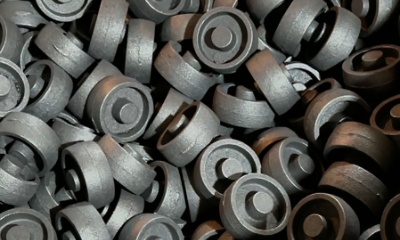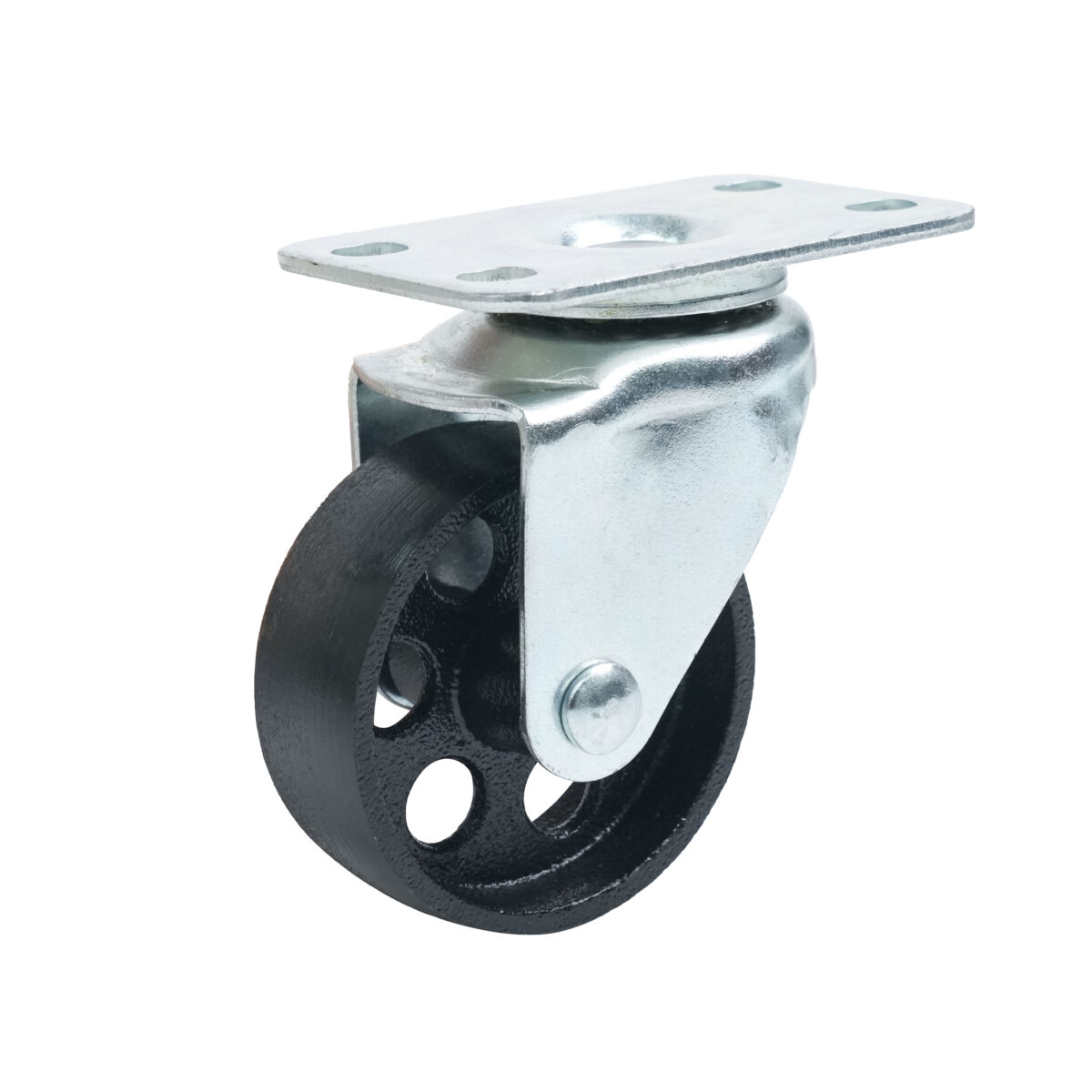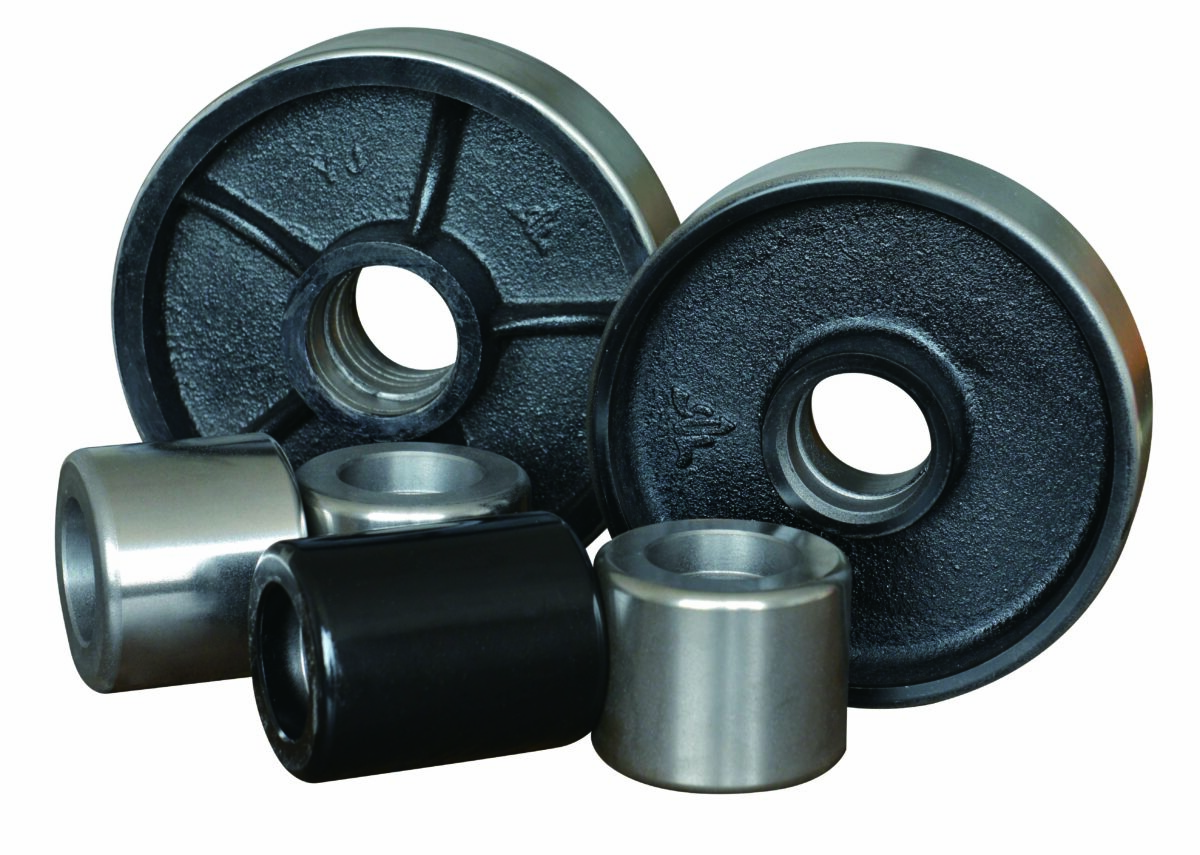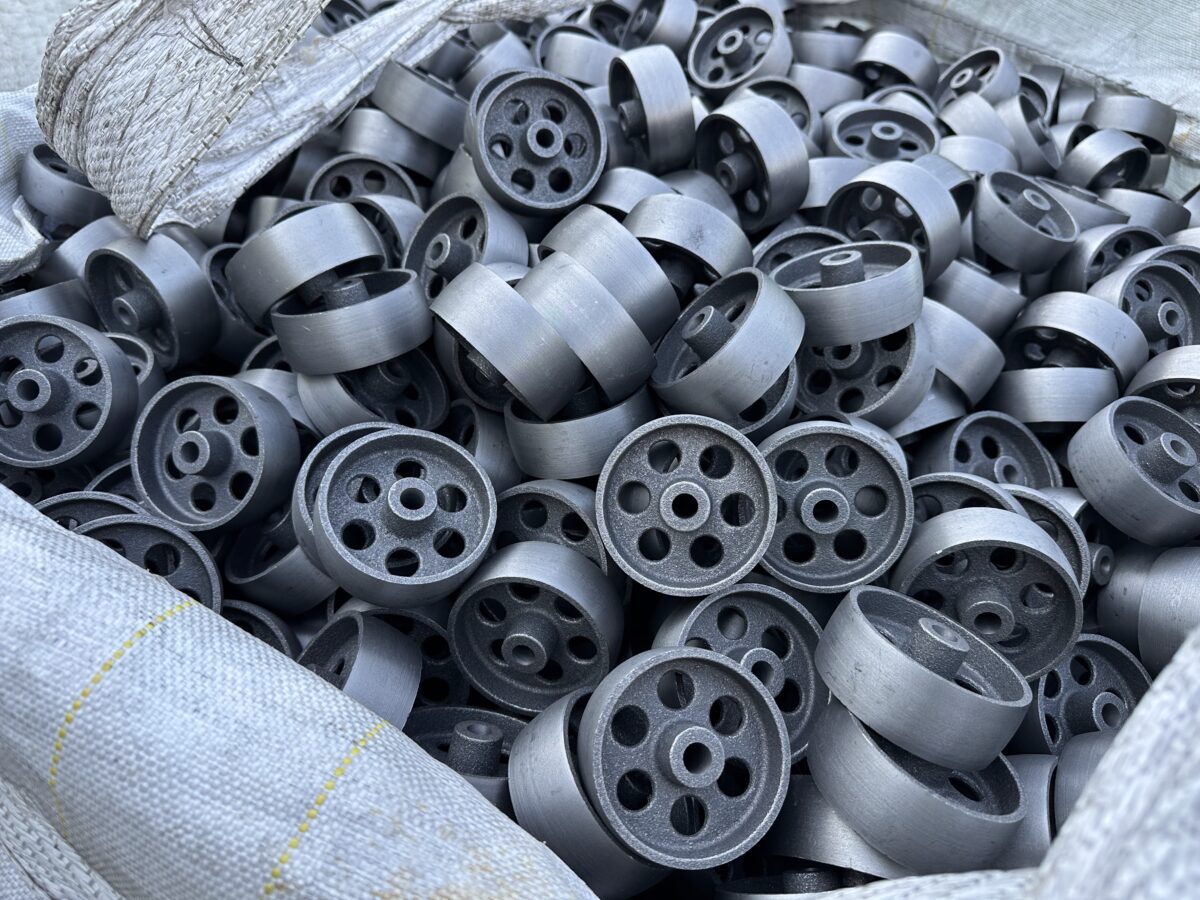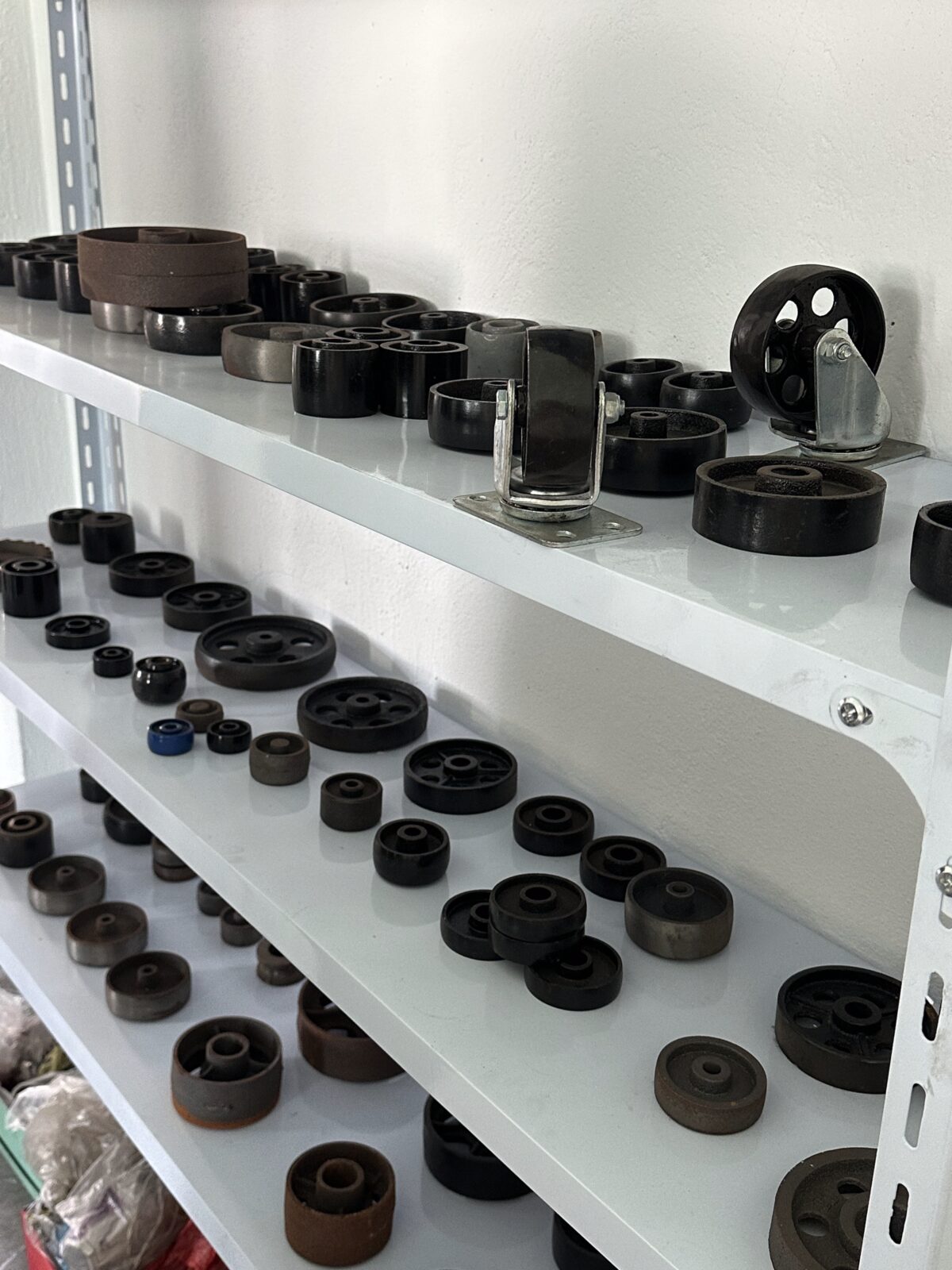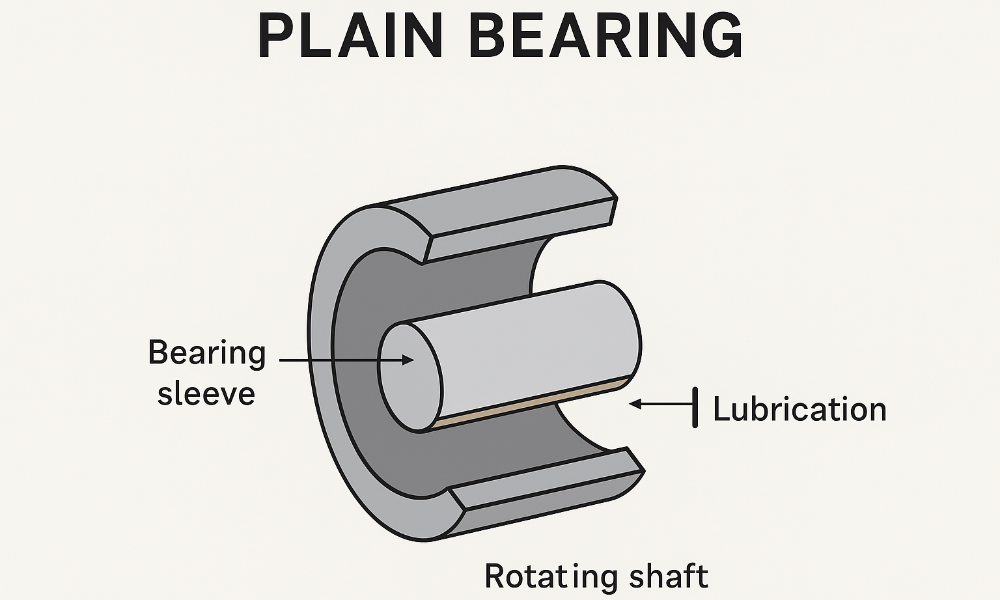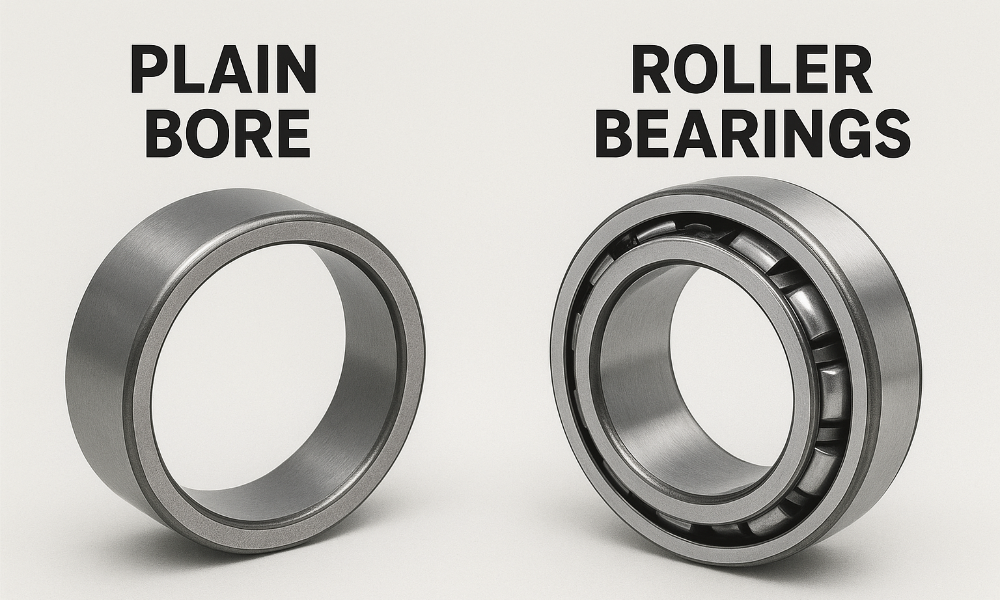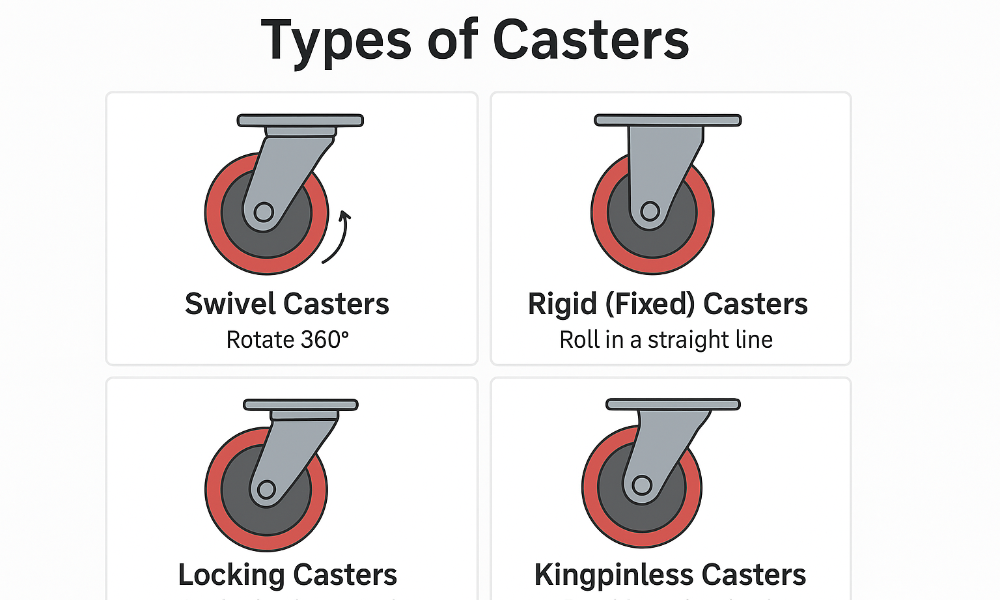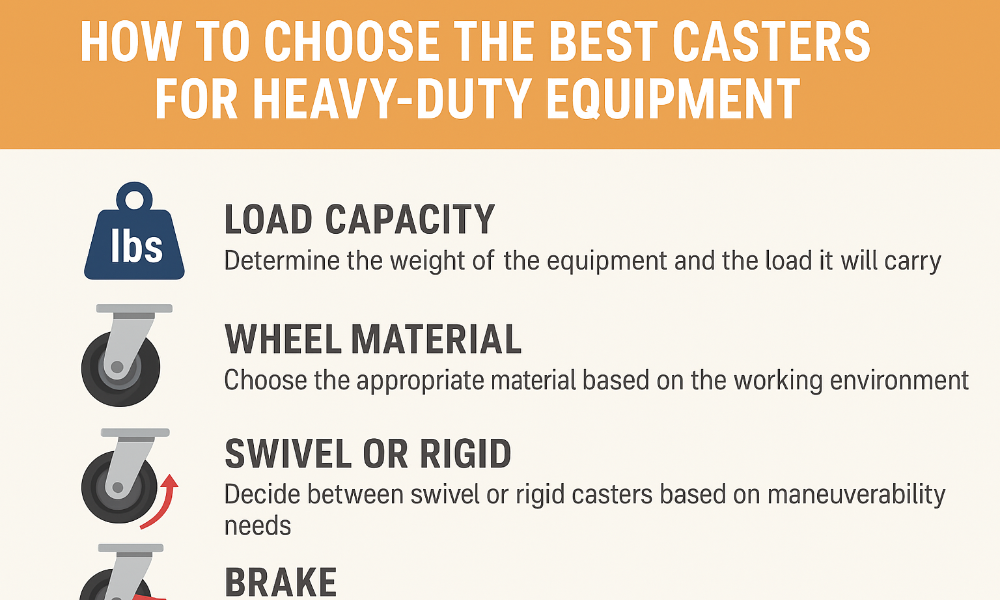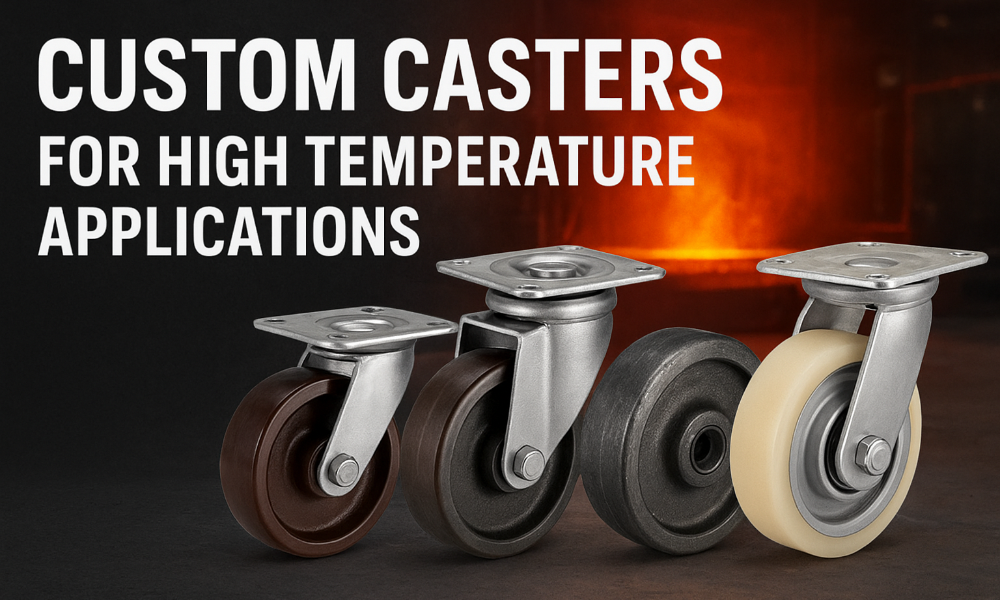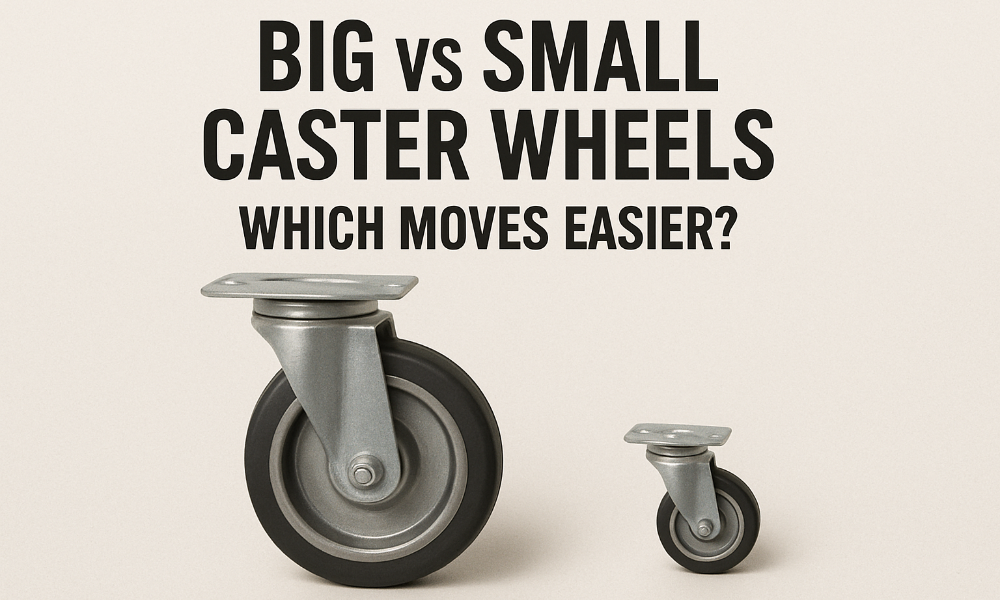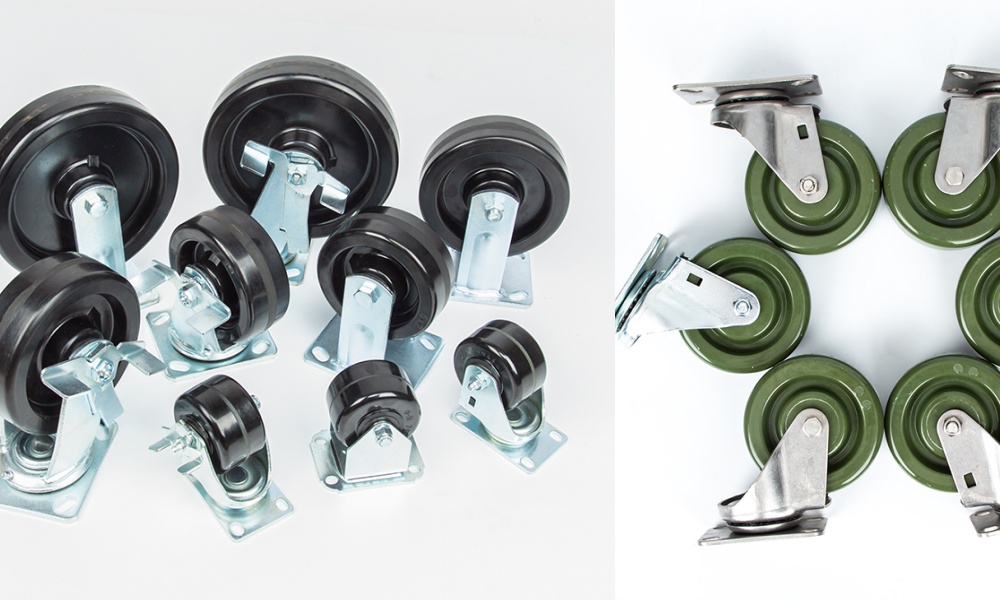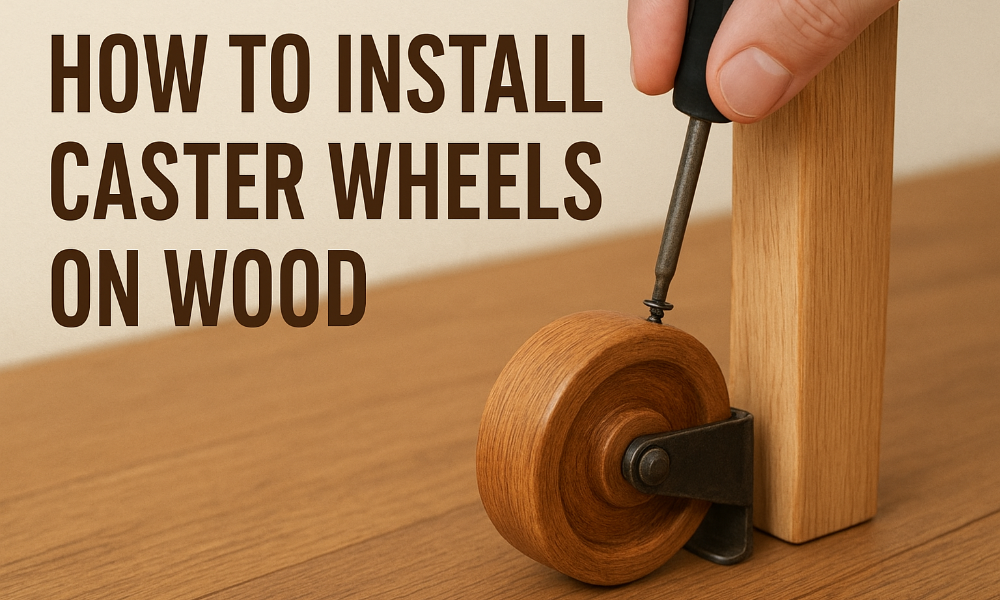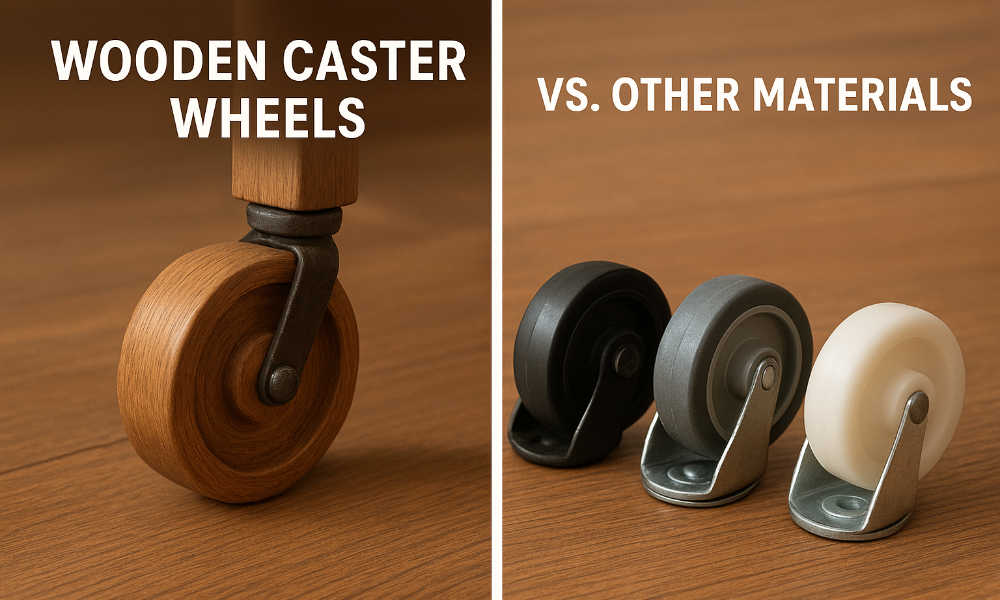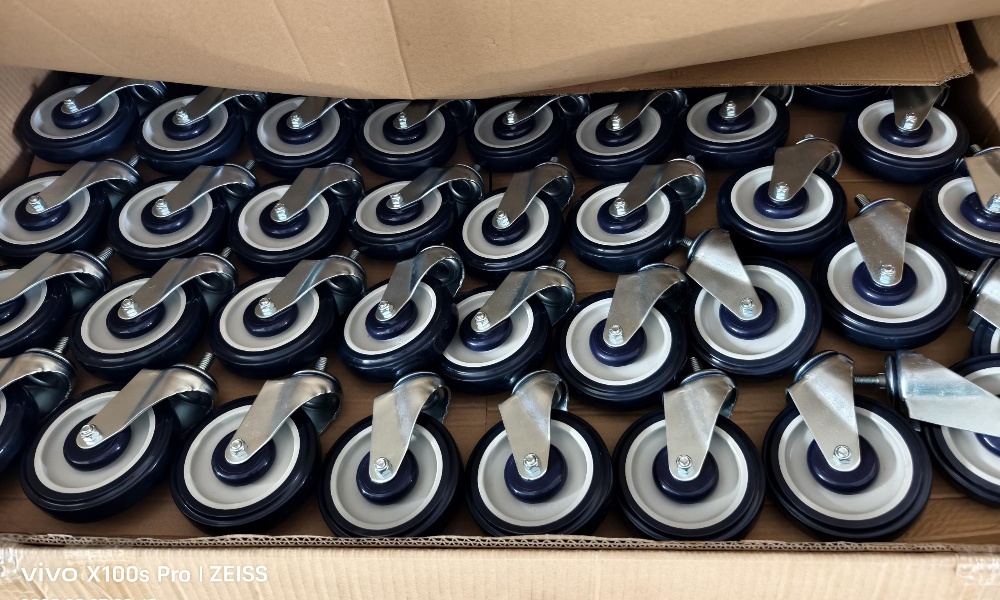Forged Steel Wheels vs Cast Iron Wheels
When it comes to heavy-duty applications, choosing the right wheel material is critical. Forged steel wheels and cast iron wheels are two of the most common options used in industrial environments such as factories, warehouses, and transportation systems. Both materials have their strengths and weaknesses, and understanding these differences is essential for optimal performance and safety. In this article, we compare forged steel and cast iron wheels across several key categories: strength, durability, wear resistance, load capacity, cost, and suitability for different environments.
What Are Forged Wheels?
Forged wheels are made by shaping solid steel under extreme heat and pressure. Unlike casting, the forging process compresses the metal’s internal grain structure, improving strength and reducing defects. The result is a wheel that offers high tensile strength, impact resistance, and structural integrity. Forged steel wheels are commonly used in railway systems, construction equipment, and heavy-duty carts, where maximum reliability is needed.
Forged wheels are renowned for:
High impact resistance
Superior load capacity
Excellent fatigue life
Exceptional structural integrity
They are ideal for railway systems, mining carts, cranes, and material handling equipment in extreme-duty environments.
What Is a Cast Iron Wheel?
Cast iron wheels are manufactured by pouring molten iron into molds, then allowing it to cool and solidify. This process allows for mass production and is cost-effective. However, cast iron has a crystalline, brittle structure, making it more prone to cracking under impact or shock. These wheels are best suited for light to medium industrial uses on smooth, flat floors where impacts are minimal.
These wheels are typically used in:
Warehouse trolleys
Heavy carts on smooth concrete
Furnace and oven lines
While cost-effective and sufficient for lower-demand tasks, cast iron wheels are not suited for shock-loading or uneven terrain.
Material Composition and Manufacturing Process
The key difference starts with the material structure and how the wheels are manufactured.
Forged Steel Wheels undergo a hot-forging process that transforms a solid piece of steel into a denser, more cohesive form. The metal grains flow in the direction of the deformation, enhancing the wheel’s strength, toughness, and resistance to fatigue and crack propagation.
Cast Iron Wheels, by contrast, rely on molten metal that cools in a mold. Although easier and cheaper to produce, casting does not align the metal’s grains and introduces potential for weak spots such as micro-cracks, porosity, and inclusions.
| Feature | Forged Steel Wheels | Cast Iron Wheels |
| Manufacturing Process | Forging (heat + pressure) | Casting (molten metal in mold) |
| Grain Structure | Refined and aligned | Random and brittle |
| Porosity | Minimal | Moderate to High |
| Surface Finish | Precision-machined | Rougher; may require post-finishing |
Strength and Load Capacity
Strength is one of the most critical differentiators between forged steel and cast iron wheels.
Forged wheels offer superior tensile and yield strength, allowing them to carry significantly heavier loads without permanent deformation. This makes them suitable for dynamic loads and harsh environments where both axial and radial stresses are present.
Cast iron wheels have decent compressive strength but much lower tensile strength. Under sudden impact or overload, they may fracture rather than deform, posing a safety risk.
| Feature | Forged Steel | Cast Iron |
| Tensile Strength | Very High (>600 MPa) | Moderate (150–350 MPa) |
| Impact Strength | Excellent | Poor |
| Load Capacity | Up to 30,000 lbs | Up to 8,000–10,000 lbs |
| Deformation Risk | Low | Moderate to High |
Durability and Wear Resistance
Durability is paramount in industrial wheel applications due to prolonged usage and exposure to abrasive surfaces or harsh conditions.
Forged steel wheels offer enhanced durability due to their tough, uniform structure. They resist surface wear, chipping, and fatigue cracking even under continuous use. Many forged wheels can also be heat-treated or surface-hardened for added wear protection.
Cast iron wheels are more prone to edge chipping and wear, particularly in environments with debris, moisture, or uneven flooring. They wear well on smooth floors but degrade quickly in rough conditions.
| Feature | Forged Steel Wheels | Cast Iron Wheels |
| Crack Resistance | Excellent | Poor |
| Surface Hardness | High (up to 60 HRC) | Moderate (30–40 HRC) |
| Fatigue Life | Very Long | Shorter under stress |
| Lifespan (avg. use) | 8–10 years | 3–5 years |
Cost and Availability
Cost is always a consideration in equipment selection.
Forged wheels require more energy and complex tooling to produce, leading to higher initial costs. However, their longer lifespan and lower maintenance requirements often result in lower total cost of ownership (TCO).
Cast iron wheels are cheaper to produce and easier to source in standard sizes. For short-term or light-duty use, they offer better upfront affordability.
| Factor | Forged Steel | Cast Iron |
| Initial Cost | Higher | Lower |
| Lifespan ROI | Excellent | Moderate |
| Maintenance | Minimal | May require frequent replacement |
| Availability | Less common (custom sizes) | Widely available |
Application Suitability
Selecting the correct wheel depends on where and how it will be used.
| Application Type | Recommended Wheel Type | Justification |
| Mining, Rail, Cranes | Forged Steel | High shock loads, extreme durability required |
| Automotive Manufacturing | Forged Steel | Precision movement, heavy-duty operations |
| Assembly Lines (light/medium) | Cast Iron | Economical and adequate in low-impact settings |
| High Heat Furnaces | Both (Cast Iron more common) | Heat-resistance is good in both |
| Harsh outdoor terrain | Forged Steel | Resistant to cracking and wear on uneven ground |
Noise and Floor Impact
Material hardness impacts operational noise and floor wear.
Forged steel wheels can be loud, but when properly machined or used with tread coatings, they can minimize noise and protect flooring.
Cast iron wheels are typically noisier and more damaging to floors, especially when overloaded or operated on concrete. They transmit vibrations directly and have no shock absorption.
| Feature | Forged Steel | Cast Iron |
| Noise Level | Moderate | High |
| Shock Absorption | Low (can be mitigated with dampers) | Very Low |
| Floor Protection | Better (coating possible) | Poor (may chip or gouge floors) |
| Suitable for Indoor | Yes (if coated) | Only with protective tracks/floors |
Why Choose Our Forged Steel and Cast Iron Wheels?
At TARGET Brakes, we specialize in manufacturing high-performance industrial wheels tailored for demanding environments. Our forged steel wheels are engineered using precision forging and CNC machining to deliver exceptional load capacity, impact resistance, and long service life. For more cost-sensitive applications, our cast iron wheels offer reliable performance and excellent value for a wide range of warehouse and material handling needs.
Why customers choose us:
ISO-certified production facilities
Strict quality control in every manufacturing stage
Custom wheel sizes and configurations available
Fast delivery and professional technical support
Whether you require rugged forged steel wheels for extreme-duty applications or dependable cast iron wheels for day-to-day operations, TARGET Casters delivers performance you can trust.
Contact us today to request a quote or technical consultation.

